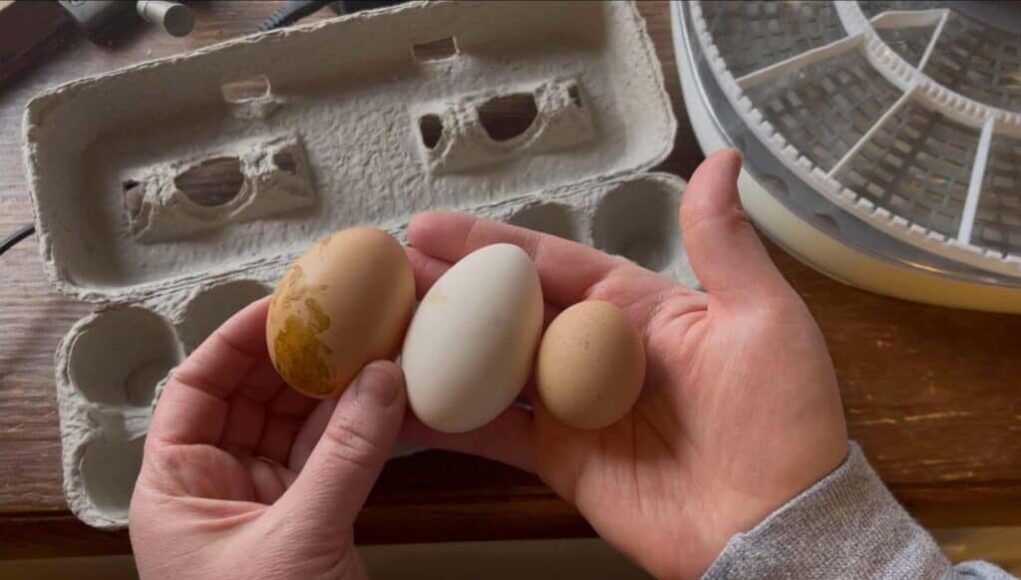When it comes to raising healthy chicks, maintaining a clean environment is crucial. Understanding how to avoid bacteria in incubator is essential for ensuring the successful hatching of eggs. Bacteria can thrive in incubators if not properly managed, leading to poor hatch rates and unhealthy chicks. By taking the time to learn effective sanitation methods, you can protect your eggs and ensure the health of your future flock.

The Importance of a Clean Incubator
A clean incubator is vital for preventing the spread of bacteria and ensuring a high hatch rate. Bacteria can easily multiply in the warm, humid conditions of an incubator. If left unchecked, this can result in bacterial infections that affect the developing embryos. To learn more about the basics of egg incubation, check out our beginner’s guide.
Understanding Bacteria in Incubators
Common Sources of Bacteria
The primary sources of bacteria in incubators include dirty eggs, unclean equipment, and improper handling. Bacteria can be introduced through contaminated surfaces or by not washing hands before handling eggs.
Effects of Bacteria on Embryos
Bacteria can penetrate eggshells, causing infections that lead to embryo mortality. This can be particularly problematic during the early stages of incubation, where the embryo is most vulnerable.
Preparing Your Incubator
Cleaning and Disinfecting
Before placing eggs in the incubator, it is crucial to clean and disinfect the interior. Use a mild disinfectant solution to wipe down all surfaces. Be sure to rinse thoroughly and allow the incubator to dry completely.
Choosing the Right Location
Place the incubator in a clean, dust-free area. Avoid locations where there is a lot of foot traffic or potential for contamination. This will reduce the chances of bacteria entering the incubator.
Handling and Storing Eggs
Proper Egg Handling
Always wash your hands before handling eggs to prevent transferring bacteria. Handle eggs gently to avoid cracks that can allow bacteria to enter.
Storing Eggs Safely
Store eggs in a cool, clean area before incubation. For tips on proper egg storage, visit our page on egg storage.
Maintaining Incubator Conditions
Temperature Control
Keep the incubator at a consistent temperature to prevent bacterial growth. Fluctuations can create an environment where bacteria thrive.
Humidity Levels
Maintain proper humidity levels to ensure the eggs develop correctly. High humidity can encourage bacterial growth, so it’s important to monitor and adjust as needed. For more on this, visit our guide on humidity in incubators.
Monitoring and Maintenance
Regular Monitoring
Check the incubator daily to ensure conditions remain stable. Look for signs of mold or bacterial growth and address any issues immediately.
Maintaining Equipment
Regularly clean and check all equipment associated with the incubator, including thermometers and humidity sensors.
Post-Hatch Care
Cleaning After Hatching
After chicks have hatched, thoroughly clean the incubator to remove any debris or bacteria. This will prepare it for the next batch of eggs. For more on caring for chicks post-hatch, read our article on chick care.
Health Monitoring
Observe your chicks for any signs of illness. Early detection of health issues can prevent the spread of disease within your flock.
Additional Resources
For more information on hatching chicks and avoiding bacteria, consider reading external resources like this insightful article on the care and incubation of hatching eggs.
Conclusion
Understanding how to avoid bacteria in incubator is essential for any poultry enthusiast. By maintaining a clean environment, monitoring conditions, and following proper handling procedures, you can ensure a successful hatch and raise healthy chicks. Remember, the key to a thriving flock starts with proper incubation practices.

FAQ
What is the ideal temperature for an incubator?
The ideal temperature for incubating chicken eggs is between 99.5 and 100.5 degrees Fahrenheit.
How often should I clean the incubator?
You should clean the incubator before each new batch of eggs and after hatching to prevent bacterial buildup.
Can eggs with cracks be incubated?
It’s best to avoid incubating cracked eggs as they can allow bacteria to enter and harm the developing embryo.
This article contains affiliate links. We may earn a commission at no extra cost to you.











